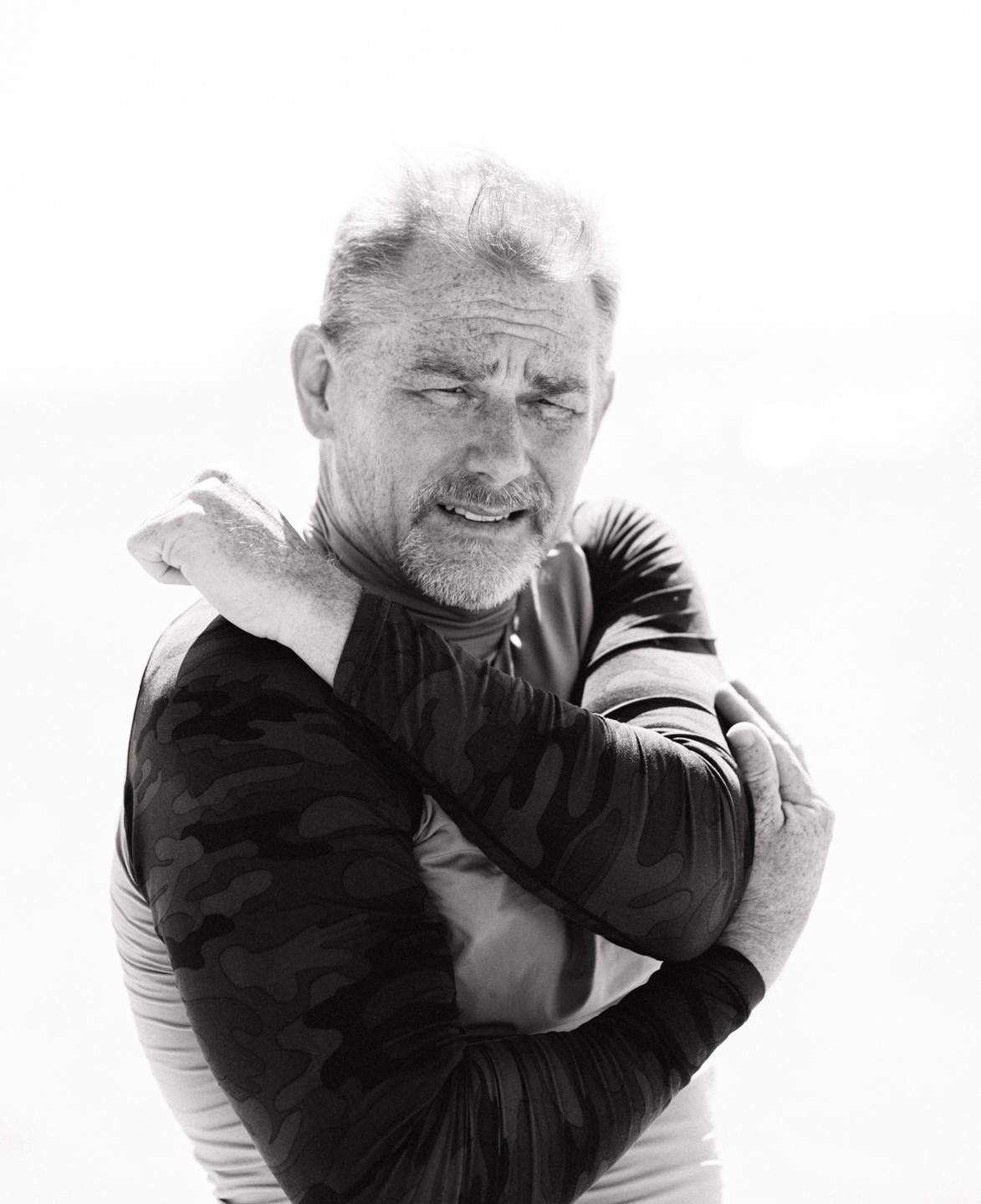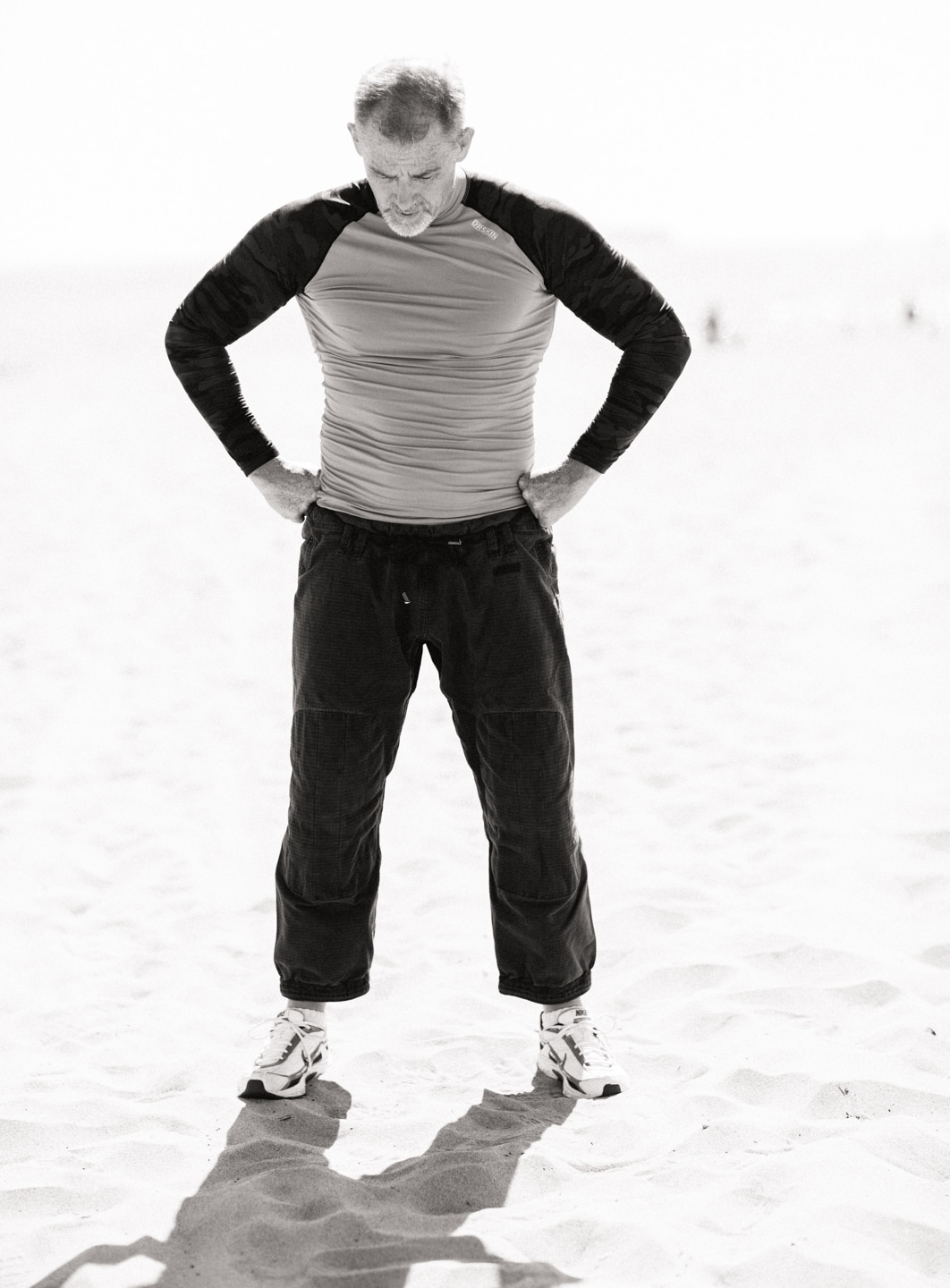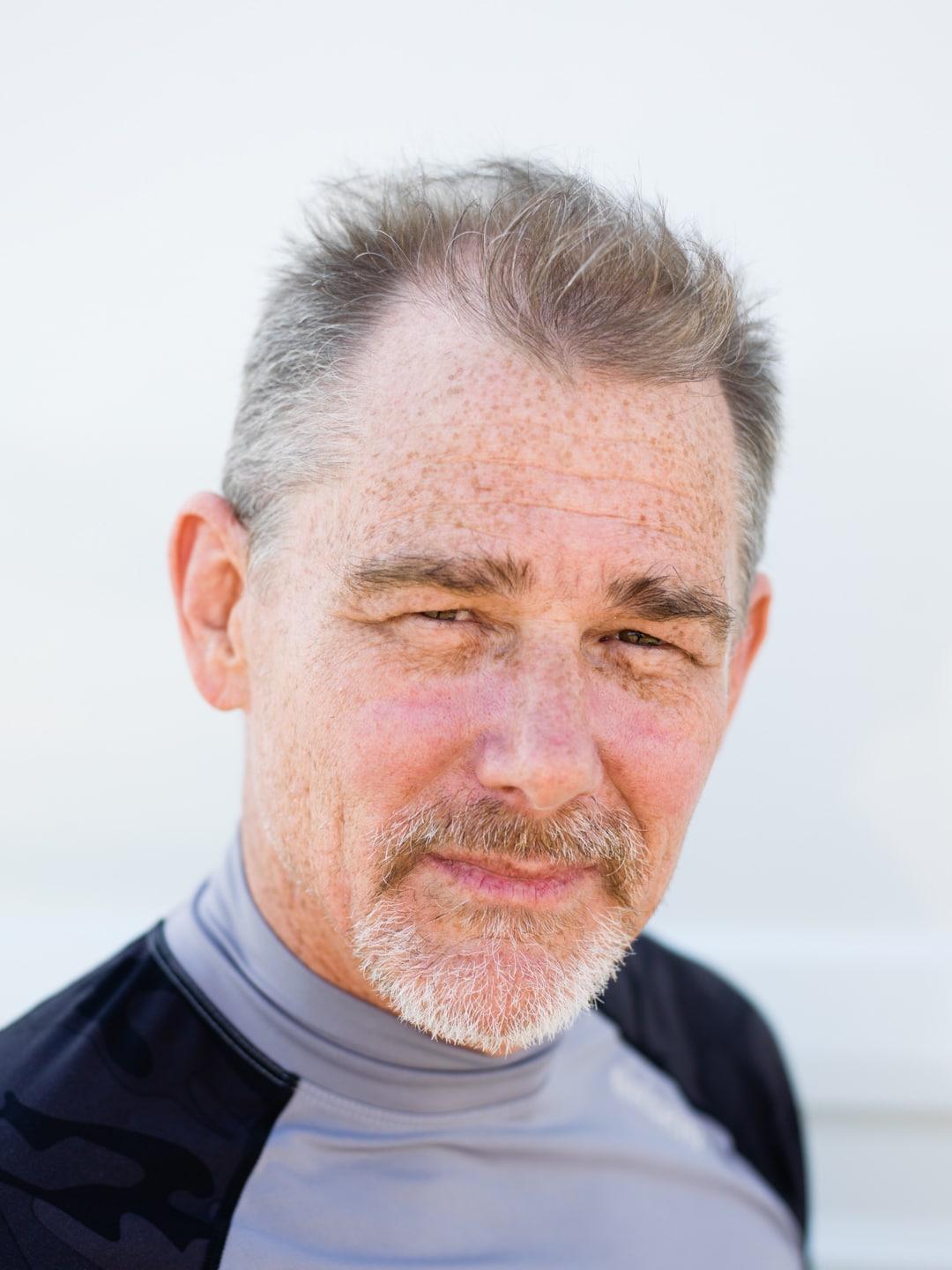The day after he dropped his son off to join the Marines, Tom Roush walked into his boss’ office and gave two weeks’ notice without another job lined up.
“I’m done,” Roush told his boss at the TV station where he sold ads. “I hated going to work and I thought, ‘I can just sit here or I can do something about it.’ ”
His balls-to-the-wall, why-the-hell-not attitude, his natural curiosity and willingness to learn new things — mixed with a little luck — have led to a rich, fulfilling life for Roush. It has propelled him from a small town on Florida’s “Redneck Riviera” to a prosperous film career in Hollywood to a successful 17-year run in ad sales.
Roush has never been one to wait for things to happen for him. Whether driven by passion or personal circumstances, he has reinvented himself numerous times over the past three decades. It’s a process that has been exciting and fulfilling, but also lonely and painful at times.
“But for all of the poorly planned things I’ve done throughout my life, things have worked out pretty well,” says 55-year-old Roush. “Every time I jump, I usually land somewhere and work to make something of it.”

A Lifelong Wanderer
Now Roush has landed in a new job as an account executive at Data Gumbo in a cutting-edge industry — blockchain. Blockchain, originally devised for the digital currency, is a system in which a record of transactions is maintained across several computers that are linked.
He’s traveled a long way from Penscacola, Florida, where he grew up in a town with little diversity but a lot of religion. His father worked at a paper mill and his mother was a school teacher. Nobody around him was doing anything he wanted to do.
“I was a wanderer,” says Roush. “My ambition was to leave.”
So, in the middle of his junior year of high school, he dropped out. One of the few things he knew how to do was play music — trombone and guitar. So he worked odd jobs and applied — sight unseen — to California Institute of the Arts (CalArts), one of the nation’s leading colleges of the visual and performing arts.
“I had never been there before and just showed up,” he recalls. “I slept in a room where they stored mattresses.”
Getting a Face Full of Everything
For someone who grew up in a sheltered world — where everyone pretty much looked the same — CalArts was a major culture shock.
“I didn’t know any Jews and I’d heard rumors about people being gay,” he says. “I saw my first Shakespearean play and my first foreign-language film. I got a full face full of everything at CalArts.”
Roush jumped into this new world with both feet, fully embracing all of the new people and experiences. He graduated with a music degree and moved from Valencia in the Santa Clarita Valley to Venice Beach. To pay his bills, he played in a few bands, taught guitar lessons and worked a “mind-numbing job” filing papers at a law firm.
“I lived in an apartment that was so small that when you opened the refrigerator, you hit the counter,” Roush says, describing the Venice Beach place he shared with two friends.
Making It in the Movie Business
The only people he knew who were making a living worked in the movie business. So that’s where he set his sights. While visiting Pensacola, he found out that Florida State University was launching a film school. He moved back and finished the two-year program, heading back to Los Angeles where he got a job working for special-effects shop Cinesite Studios.
“I remember the first day of work, thinking, ‘I’m in the movie business, I’ve made it,’” Roush recalls. “I was so happy to have a job, I didn’t give a damn what we were working on.”
What he was working on turned out to be Waterworld — the most expensive film made at the time and what one critic called an “embarrassing, confusing cinematic disaster.” But while some may have panned it, working on the film was great experience for Roush, who cut strips of film to splice in the special effects — a skill he had learned in film school. He enjoyed working with “the Kevins” — actor Kevin Costner and director Kevin Reynolds.
During his time at Cinesite, he worked on such films as Crimson Tide, French Kiss and Space Jam, in addition to restoring old Disney movies.
In a stroke of luck, Roush met a woman whose brother, Clint Culpepper, was the script acquisitions manager at Columbia TriStar Home Video — now Sony Pictures Entertainment. Culpepper needed somebody to read scripts and provide summaries.
So Roush, who worked the night shift from 7 pm to 7 am at Cinesite, would have the scripts messengered to him, read and summarize them during his down time, and have them back to Culpepper by the time he got to work. He said people were making multimillion-dollar decisions based on his summaries.
“Eventually, they sent me more scripts than I could summarize,” he says. “He offered me a job as the story editor.”

From a Tiny Apartment to Cannes
Eventually, Roush became manager of acquisitions. He was living the high life, staying in the lavish Sony Suite at the Cannes Film Festival overlooking the iconic red-carpeted steps, making good money and writing scripts.
But Roush’s life would take another turn, this time back to his hometown. At this point, he was married to a girl he had gone to high school with and had a baby son. His wife didn’t like the LA lifestyle and wanted to return to Pensacola for a year. Roush agreed, using his time there to get an MBA at the University of West Florida and finding a job selling ads at a cable station.
“It wasn’t exactly selling ads to L’Oréal,” he says. “It was selling ads to all-you-can-eat Chinese buffets and standing in the service bay of a used-car dealer.”
The Worst Period of My Life
It was a long way from his life in California, and he calls it the worst period of his life. He was soon divorced and started selling ads at a local network TV station, which was more lucrative and interesting. After a few years, he wanted to move to a larger market, and got offered a position at the NBC affiliate in Houston in 2015.
His son John, who was in high school by this time, moved to Texas to live with him. He credits his son with introducing him to one of his biggest passions. He wanted to find something they could do together, and John showed an interest in martial arts. They decided to do a one-week trial.
“I got my ass kicked over and over, and I was hooked,” Roush says. “There’s something about the raw emotion of someone trying to choke or hit you and it brings something out in you.”
Pushing His Limits
He believes he’s just scraping the surface of what his body can do, and he’s doing jujitsu with people half his age.
“I don’t know what limitations are related to my age, but I intend to find out,” Roush says.
When John decided to enlist in the Marines, Roush decided he was going to leave his TV sales job — which proved to be more difficult than he expected. “I was happy, but I was afraid,” he recalls. “I didn’t know how long I would be out of work. I thought, ‘I’m just going to leave and see what happens.’ ”

A Tremendous Psychic Burden
Having savings and being debt free — he owns his house and car — made the decision a little easier and gave him the peace of mind that he wouldn’t run out of money if he had limited income, or no income, for a while.
“I was not going back to traditional ad sales,” says Roush. “I was prepared to be out of work for years, if that was what it took.”
What he didn’t anticipate was the void that was left without a place to go everyday.
“The rhythm was so ingrained in me,” he says. “The reality of being able to do whatever I want — while it sounds great — was tough. It was a tremendous psychic burden.”
Finding His Next Career
Roush wasn’t sure what he wanted to do with this next chapter. He knew he liked sales and that he liked working with people. He liked being “on the edge of the organization.”
He signed up for meetups where he could network with people in different industries. One day in November 2018, he went to a networking event where he heard a speaker from Data Gumbo talking about blockchain and he was fascinated. Rather than waiting to see if they would post a job, he got on the phone and called Data Gumbo’s CEO.
“He called me back,” says Roush. “Coincidentally, they were hiring their first salesperson, and I was good at selling myself.”
I Never Know What’s Going to Happen
He started his new position Feb. 1st, two and a half months after leaving his TV sales job. He says he now loves going to work. It has been exciting to work at a startup in an emerging industry.
“I never know what’s going to happen,” he says. “I’m going into companies I’ve never been to before, talking to people about something they may not know much about. It’s much better than saying, ‘Hey, do you want to buy an ad on TV?’ ”
Like all startups, he knows Data Gumbo could become a spectacular success or it could fail. But he’s prepared for anything that life throws his way.
Not Slowing Down
He takes good care of himself, working out every day — jujitsu, weight lifting and running — and is experimenting with a ketogenic diet. He also makes sure to get enough sleep.
He also invests time in his spiritual life, taking the time to pray to calm anxiety and keep him balanced. It also helps him appreciate the good things in his life and how he got here.
“I started out like a piece of Styrofoam drifting on the ocean and had to figure out what to do,” he says. “I was a high school dropout and nobody I knew did anything I wanted to do. I went through movie studios, service bays at used-car lots, marriage and divorce — from a little town in Florida to California to Houston. The list of things I’ve had to learn to follow my path is long. There’s no map. I’m making this all up.”
He may be making it up as he goes along, but this next phase of his journey will be powered by the same lifelong, unwavering, positive attitude that got him here.
“I don’t view myself as slowing down or over the hill. All of that is bullshit.”
Read here for Tammy Shaklee’s career pivot to “gay matchmaker”
Read here about Dorie Clark’s book Entrepreneurial You
Read here for our profile on Monika Gerber, Just Say Yes
The ideas expressed here are solely the opinions of the author and are not researched or verified by AGEIST LLC, or anyone associated with AGEIST LLC. This material should not be construed as medical advice or recommendation, it is for informational use only. We encourage all readers to discuss with your qualified practitioners the relevance of the application of any of these ideas to your life. The recommendations contained herein are not intended to diagnose, treat, cure or prevent any disease. You should always consult your physician or other qualified health provider before starting any new treatment or stopping any treatment that has been prescribed for you by your physician or other qualified health provider. Please call your doctor or 911 immediately if you think you may have a medical or psychiatric emergency.
AUTHOR

We will never sell or give your email to others. Get special info on Diet, Exercise, Sleep and Longevity.
